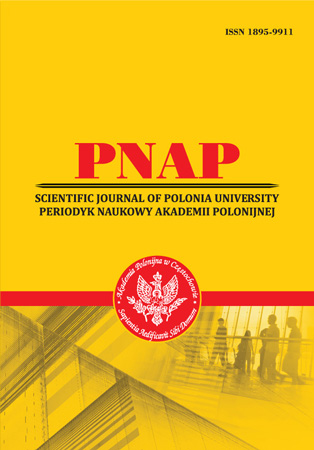ANTHROPONYMS AS MEANS OF EXPRESSION OF THE NATIONAL ESTHETICS OF TARAS MELNYCHUK’S LINGUISTIC WORLD
Abstrakt
The article studies anthroponyms in Taras Melnychuk’s poetic linguistic world. The research analyses the semantics of the proper names of the theme groups “national history” and “national literature” and focuses on their ethnolinguistic aspect. Mostly outlined is the connotation of the proper names that denote the representatives of the national history of the time of princes and the time of the liberation struggle of the 17th–19th centuries. The epoch of the Kyivan Rus is represented mainly by anthroponyms denoting the princes who were statebuilders (Святослав, Володимир, Ігор and others). The time of the Cossack and peasant movement is represented by anthroponyms that denote personalities widely-known in Ukranian society: Cossack leaders (Богдан Хмельницький, Сірко, Нечай and others) and vigilantes (Довбуш, Кармелюк). Another powerful identifier of the esthetic mentality of the Sixtiers in T. Melnychuk’s works are proper names that outline the literary circle represented in the author’s anthroponymicon by the names, surnames and сircumlocutions of Ukrainian classics (Сковорода, Тарас and others). The author’s comprehension of the historical discourse, the constant search of historic reasons for losing national freedom, the accentuated dramatic reliving of Ukraine’s fate fully represent the dissident worldview. It is observed that the author’s linguistic mind is closely interwoven with mythology and folk song tradition, which points to the main features of the poet’s individual style.
Wykaz bibliografii
2. Dyvoovyd: Antolohiia ukrainskoi poezii KhKh stolittia [Dyvoovyd: Antology of the Ukrainian poetry of the 20th sentury] / Uporiad., peredm., dovidky pro avt. I. Luchuka. Compilation, introduction, information about the authors by I. Luchuk Ternopil: Navchalna knyha – Bohdan, 2007. 11 s. [in Ukrainian]
3. Zhaivoronok N. V. Ukranska etnolinhvistyka: Narysy [Ukrainian ethnolinguistics: Sketches]: Navch. posib. dlia stud. vyshch. navch. zakl. K.: Dovira, 2007. 262 s. [in Ukrainian]
4. Zelenenka I. A. Obrazna systema liryky Tarasa Melnychuka [The image system of Taras Melnychuk’s poems] : avtoref. dys… kand. filol. nauk : 10.01.01 / I. A. Zelenenka ; Lvivskyi natsionalnyi un-t im. Ivana Franka. L., 2009. 15 s. [in Ukrainian]
5. Melnychuk T. Tvory : v 3 t. [Works: in 3 volumes] / T. Yu. Melnychuk. Kolomyia : Vik, 2003. T. 1. 254 s. [in Ukrainian]
6. Melnychuk T. Tvory : v 3 t. [Works: in 3 volumes] / T. Yu. Melnychuk. Kolomyia : Vik, 2003. T. 2. 256 s. [in Ukrainian]
7. Melnychuk T. Tvory : v 3 t. [Works: in 3 volumes] / T. Yu. Melnychuk. Kolomyia : Vik, 2006. T. 3. Kn. 1. 496 s. [in Ukrainian]
8. Melnychuk T. Tvory : v 3 t. [Works: in 3 volumes] / T. Yu. Melnychuk. Kolomyia : Vik, 2007. T. 3. Kn. 2. 343 s. [in Ukrainian]
9. Rylov Yu. A. Imena sobstvennye v indoevropejskih yazykah. Romanskaya i russkaya antroponimika : [monografiya] [Proper names in Indo-European languages. Roman and Russian anthroponymics] / Yurij Alekseevich Rylov. M. : Vostok-Zapad, 2006. 314 s. [in Russian]
10. Slovar biblejskih obrazov [Dictionary of biblical images] / pod obsh. Red. L. Rajkena, Dzh. Uilhojta, T. Longmana III. SPb., 2005. 1423 s. [in Russian]
11. Teliya V. N. Russkaya frazeologiya. Semanticheskij, pragmaticheskij i lingvokulturologicheskij aspekty [Russian phraseology. The semantic, pragmatic and linguocultural aspects] / V. N. Teliya. M. : Shkola «Yazyki russkoj kultury», 1996. 288 s. [in Russian]
12. Ukrainski narodni dumy ta istorychni pisni [Ukrainian folk dumas and historical songs], Kyiv: Veselka,1990, s. 130–134. [in Ukrainian]
Abstract views: 261 PDF Downloads: 168







